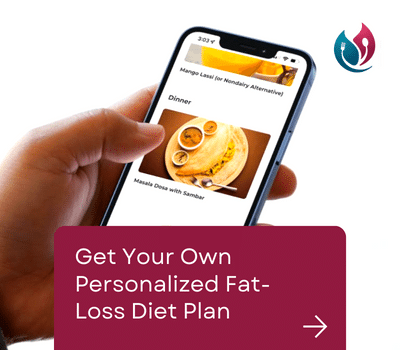Maintaining weight loss has become the new holy grail of managing health in obesity. Many people can figure out how to lose weight and see temporary health improvements, but it seems like those who keep it off are rare mythical creatures. There are many reasons that is the case. Some of those reasons have to do with biology, and we need more research and better strategies in this area. However, in some cases the issue might also be related to practicalities.
Successful Weight Loss Maintenance
Those who are successful at maintaining weight loss tend to remain vigilant and habitual about their food intake and exercise. Many aspects of their fat loss routine stay the same during weight maintenance—with some modifications, of course—but those habits that helped reduce body weight also help to maintain that loss. Continued food monitoring, self-weighing, and exercise are a few examples of such behaviors.
Therefore, the eating routine that helped you lose weight might also be helpful to maintain that loss. And that eating routine must be sustained. Weight loss maintenance is not a temporary feat. It is a lifelong affair. If you have the tendency to gain weight, that tendency does not just disappear because you lost weight. The weight will come back without continued effort.
If you feel like your weight loss habits were difficult to sustain, that might mean that your weight loss maintenance will also be difficult to sustain. If the routines you developed disrupted your relationships, the pleasure or comfort you got from food, your nutritional status, your financial situation, or countless other aspects of your life that diets can disrupt, how long can you go on like that?
If when you reach your weight loss goal, you feel like you are being set free from your shackles, that’s a red flag. Now what do you do? You respond how most people would respond when they are set free: by celebrating and immediately returning to what is comfortable! And that can trigger weight regain.
There Is Another Way
Weight loss maintenance is never easy, but it can at least be clear and more straightforward. If your weight loss diet leaves you feeling miserable during weight loss and abandoned during weight maintenance, perhaps it’s time for a different approach. Instead of a diet that is hard to sustain, why not find one that better fits your lifestyle?
If you can learn to lose weight within the boundaries of your pre-weight loss lifestyle, the transition to weight loss maintenance is simpler. For example, let’s imagine that instead of avoiding your family’s favorite restaurant because it doesn’t have good options that are compatible with your diet, you instead learn what to order during your weight loss phase that is compatible with a more flexible approach to weight loss. Now when you go to that restaurant, you know what to order during weight maintenance!
Or, similarly, instead of avoiding birthday cake at every party you go to, you understand how to fit birthday cake into a more flexible approach to weight loss. Again, now that you have those skills, you know how to manage eating birthday cake at the birthday parties that you will inevitably go to when you are maintaining your weight loss.
Finding a Sustainable Approach to Weight Management
This more practical approach to weight loss and weight maintenance might sound too good to be true. It might even sound ridiculous that you could eat at restaurants or eat birthday cake and lose weight. But sustainable must mean practical. Food is more than nutrients to people. It is entwined in our social identity, our cultural identity, and is habitual. For an approach to be practical, you need one that considers all the things that food means to you.
This type of approach usually involves input from you. It tweaks aspects of your current habits to produce weight loss. So look for a program that gets your input and involves you. Then the approach will feel personalized and will help you learn how to navigate your life as it is. It won’t teach you to flip your life upside down, and then try to learn to live that way.
Finding a personalized approach that fits into the lifestyle you already live is the first step to sustainable weight loss, maintaining weight loss, and all the health benefits that come with these goals.


